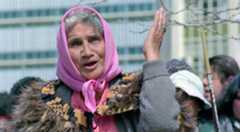Story: Kaumātua – Māori elders

Kaumātua, Māori elders, have many important roles in their families and tribes, including preserving traditions and knowledge, providing leadership, and nurturing the younger generations.
Story by Rawinia Higgins and Paul Meredith
Main image: Whina Cooper, kaumātua of Te Rarawa
Story summary
Role of kaumātua
Kaumātua are elders in Māori society, and are held in high esteem. They have a variety of roles in theirwhānau (wider family),hapū (sub-tribe) andiwi (tribe):
- being the storehouses of tribal knowledge, genealogy and traditions
- acting as guardians oftikanga (Māori customs)
- nurturing children – traditionallykaumātua looked after children while their parents worked or went away to fight, and often brought up the first grandchild
- providing leadership
- helping resolve disputes.
Kaumātua in traditional stories
Kaumātua often feature in traditional Māori stories as nurturers of the young and keepers of knowledge to be passed on.
Māui was rescued and raised by his grandfather Tamanui-ki-te-rangi. He gained knowledge from his kuia (female elders), including the secret of fire.
Whaitiri, the grandmother of Tāwhaki and his brother Karihi, told them the best way to climb to the sky.
Kaumātua in recent times
In the second half of the 20th century many Māori moved from their traditional homes into cities for work. This meant that traditional knowledge was not always passed down. Some tribes have started programmes for theirkaumātua to ensure their knowledge and traditions are passed down.
From the 1970smarae establishedkaumātua flats, with an aim of keepingkaumātua as an active part of themarae community.
How to cite this page
Rawinia Higgins and Paul Meredith, Kaumātua – Māori elders, Te Ara – the Encyclopedia of New Zealand, https://teara.govt.nz/en/kaumatua-maori-elders (accessed 27 October 2025).
Story by Rawinia Higgins and Paul Meredith, published 18 February 2013.



